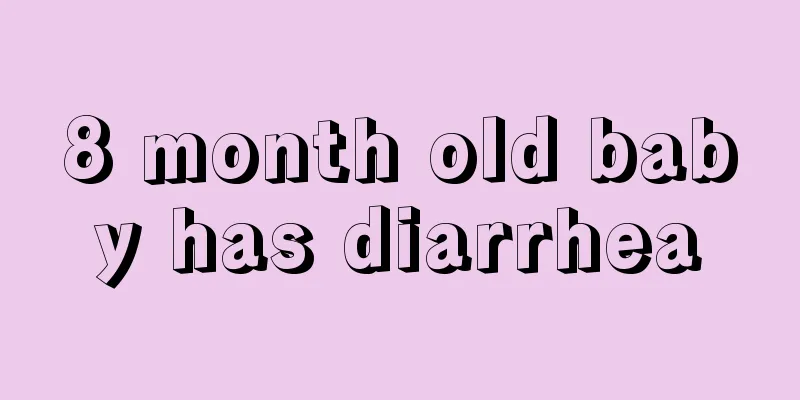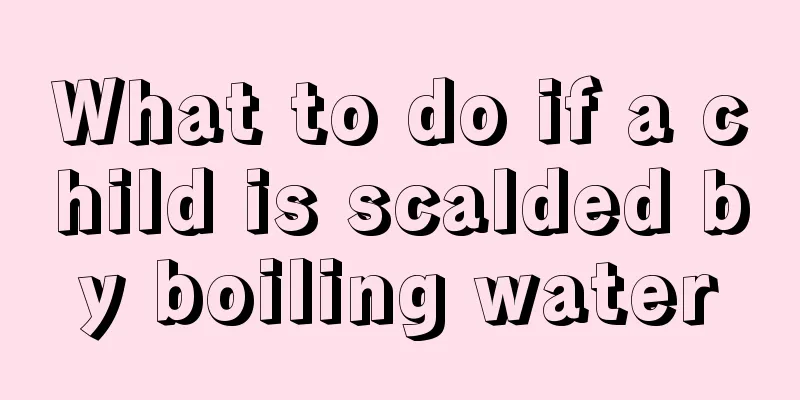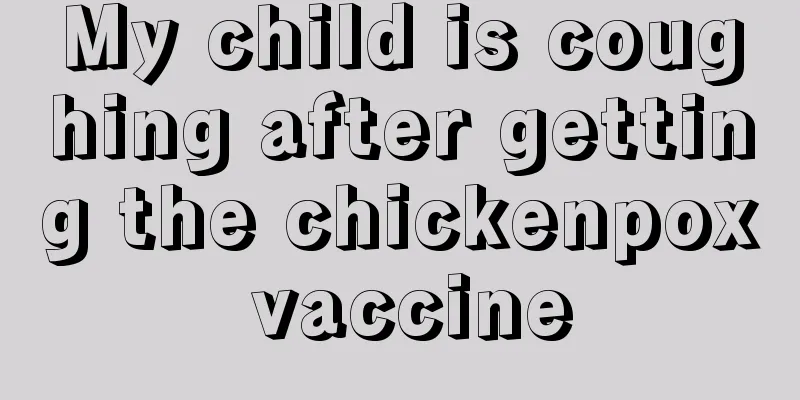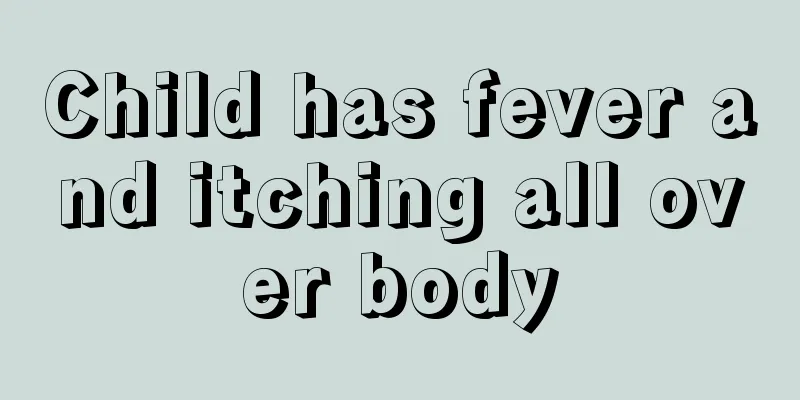8 month old baby has diarrhea

|
It is very common for babies to have diarrhea. There are many reasons for diarrhea. It may be related to unhygienic food, or it may be caused by the baby's stomach catching a cold, or it may be caused by the baby eating unclean things. However, diarrhea in an eight-month-old baby must be taken seriously. Take the baby to the hospital in time to find out the cause, and then treat the symptoms to prevent the baby from dehydration. What is the reason for eight-month-old baby to have diarrhea? 1. Non-infectious 1) The gastrointestinal function is still underdeveloped and the ability to accept complementary foods is not perfect. The gastrointestinal function of an eight-month-old baby is still not strong, and he has not been able to fully accept complementary foods, which is one of the causes of diarrhea. 2) Reduced immunity from breast milk. When the baby is six months old, the immune factors in breast milk gradually weaken, and the baby will gradually form his own immune system, but the immune system of an eight-month-old baby has not yet been formed, so diarrhea is more likely to occur. 3) Improper feeding. Feeding too much, too little, too frequently, or suddenly changing the type of food may also cause diarrhea in your baby. 4) Climate change, catching cold. When the baby catches a cold, cold air enters the body, affecting the stomach and intestines and causing diarrhea. 2. Infectivity 1) If the tableware used by babies is not cleaned properly, it is easy to breed bacteria and viruses, and babies are likely to have diarrhea when using them. 2) Eight-month-old babies can slowly put things in their mouths by themselves, or touch toys, things on the ground, etc., and then put their hands in their mouths, which can easily lead to bacterial infection and diarrhea. What to do if your eight-month-old baby has diarrhea 1. No need to fast, but adjust your diet Regardless of the cause of diarrhea, although the baby's digestive tract function is reduced, the baby can still digest and absorb some nutrients, so breastfed babies should continue to be fed as long as the baby wants to eat. However, you can feed your baby appropriate amounts of rice soup containing salt, or carrot water, or fresh vegetable water to supplement inorganic salts and vitamins. But the feeding amount should be slightly reduced. If a breastfed child develops diarrhea, do not wean the child off breastfeeding easily. At this time, you can shorten the time of each feeding and let the child eat the first 1/2 to 2/3 of the milk, because the first half of breast milk mainly contains substances such as protein. The second half of breast milk mainly contains substances such as fat, which is difficult to digest, so this part of milk can be squeezed out and poured away. If the child is fed with cow's milk, it is not appropriate to feed him whole milk, but skimmed milk. You can make skim milk at home. After the milk is boiled and cooled, use chopsticks to pick up the layer of milk skin on the surface and throw it away. Repeat this three times and you will have skim milk. However, once the baby's diarrhea improves, it is not advisable to feed skimmed milk to avoid malnutrition. 2. Replenish water in time. Detect dehydration early. When an infant has severe diarrhea, accompanied by vomiting, fever, thirst, dry lips, little or no urine, sunken eye sockets and anterior fontanelle, the infant becomes "thin" in a short period of time, the skin becomes "wilted", and the infant cries without tears, this indicates that dehydration has occurred and the sick child should be sent to the hospital for treatment in time. 3. Provide good home care. The nature, color, frequency and amount of stool should be carefully observed, and the abnormal part of the stool should be kept as a specimen for testing to find out the cause of diarrhea. Pay attention to keeping the abdomen warm to reduce intestinal peristalsis. You can wrap the abdomen with a towel or apply a hot water bottle to the abdomen. Make sure the baby gets more rest. Wash the buttocks with warm water after defecation to prevent diaper rash. Diapers should be cleaned, boiled and disinfected, and dried before use. |
<<: Is baby diarrhea contagious?
>>: Will the baby have diarrhea if his feet are cold?
Recommend
What to do if a newborn has diarrhea after changing milk powder
If you want to change the milk powder for your ne...
Can babies be bathed and washed every day?
Parents will have many questions when taking care...
Pain in left side of child's abdomen
Because there are many different organs distribut...
What's wrong with the white spots on the child's throat?
Children's health is a matter of great concer...
The reason why children's palms are hot
Hot palms are a common phenomenon nowadays, becau...
Children with autism rehabilitation training should pay attention to these points
If a child develops autism, it will have a huge i...
The dangers of persistent low-grade fever in infants
For some children, if the fever persists, it will...
What can’t babies eat when they have erythema? What Parenting Experts Say
The baby's body is relatively fragile and the...
What should I do if my five-year-old child is nearsighted?
Myopia is not unfamiliar to people, because in to...
What causes dampness and toxins in children? Let you know the real situation
Normally, dampness and toxins mainly appear in th...
How should the hunger therapy be implemented during the milk aversion period?
Parents who have raised children often encounter ...
Enhance children's immunity
Children's immunity is a very important syste...
What is the best food for children to nourish their brains?
Children are at the peak period of brain intellig...
Reaction to the first injection of pentavalent vaccine
The pentavalent vaccine is a combined vaccine tha...
Causes of night coughing in children
Children’s immunity is relatively low, especially...









